All over the world, young children look for new books to read in the library. Sometimes however, they are told that they cannot read that book or to be wary because it is banned; it deals with “inappropriate” identity concepts that an innocent child should not learn about. These texts are not merely just words on paper — every single page and word within it is its own gateway to knowledge. In the year 2023-2024 school year alone, over 10,000 books holding invaluable lessons were banned from public school systems. Books that address the life of Rosa Parks and queer identity are questioned in today’s society — questioning the validity of history but also the morality of minority groups rightfully standing up for their liberties. From early on in history, books and words that appear on paper hold the most valuable knowledge.
Ever since I was little, I would stand on my tip-toes to pull books from the top shelves of bookcases. Soon enough, I became obsessed with John Green’s coming-of-age novels and Sylvia Plath’s emotional turmoil. But I was also troubled. I was troubled by the fact that some of the stories I wanted to read so desperately were also listed on a colossal list of banned books in America. I was troubled because I could not find these books in public libraries or public bookstores because they were deemed “banned” by society. But most of all, I am troubled today because these books—the same ones that taught me how to speak up and how life does not end when a friendship ends—are no longer as accessible as they once were. These books taught me more lessons than a thousand-page history book ever could.
Under the dim glow of an old, withering lamp, I sit alone in my room. The world outside is a blur of distant laughter and traffic in the day, but at night I can only hear the rain pattering across my window and the occasional burst of sound from the spark of lightning. The soft light from my lamp coincides with the pages of The Perks of Being a Wallflower, and I begin to wonder how Charlie’s thoughts are so much like my own. Charlie’s thoughts embrace me, they whisper secrets about the simultaneous pains and joys of growing up. Traveling down the tunnel in Pittsburgh — watching Charlie do the same — gives me hope. In this moment, I feel understood. I know that my life is yet to come into place around me and that this is only the beginning of my years. Stephen Chbosky’s revolutionary novel about a young teen grappling with depression and the pressures of freshman year taught me not only to take charge of my own life but also that it was okay to ask for help. Charlie taught me that it is okay to be a little broken at times and that friendships come and go with the changing tide of our lifestyles. Without access to the powerful prose of Chbosky’s novel, I’m afraid that I would feel lost today; I wouldn’t have been able to empathize with the benefits of seeing things and understanding them.
Looking across my lawn, I question my life… worried that I haven’t found a place and setting around me that is perfectly beautiful and innocent. I find myself encapsulated in Looking for Alaska by John Green, eagerly turning the pages and excited to see what will come of Alaska Young’s mysterious yet troublesome life. As I drove into Miles’ journey of self-discovery and acceptance, I realized that it was okay to be the odd one out. I began to cherish small moments with my family and friends, knowing that I might never be able to see them again. John Green’s novel truly opened my eyes to the world around me. The world is not perfect, but some moments can be when you recognize their importance and not take them for granted. I shudder to think of what I would’ve become if I hadn’t been deeply encapsulated in Looking for Alaska as a little girl. It is through stories like these that people learn to cherish the small moments with others. Although I haven’t navigated my way completely through the labyrinth of life yet, I find solace in knowing that there is not one way out.
In between classes and in my study halls, I stare down and avoid the light that strains my eyes and gives me a headache on Mondays. At school, I find comfort in finding time for myself — to learn and grow from the books I digest. Instead, I gaze at The Absolutely True Diary of a Part-Time Indian by Sherman Alexis; I am comforted by the idea of someone else struggling to find a balance between finding their own identity and fighting to be a part of the school community. Through Junior’s experiences and occasionally comedic remarks about life, I realized that life was not exclusively serious and grim… it can be whatever you make it out to be. Banning Alexis’s comedic novel about the very real struggle of finding a sense of self between systemic inequalities and cultural identities would be a disservice to society. I now understand, because of Junior’s experiences battling his own identity, that life is a constant struggle between individuality and trying to identify with a community.
Book banning in America is more than just a political act that is debated between politicians, it takes away certain rights and threatens to bring humanity to the world foreshadowed in Ray Bradbury’s Fahrenheit 451: a world where knowledge is limited among middle-class citizens and the complexities of everyday life are eliminated by an oppressive government. Book banning in America instead has resulted in thousands of books being eliminated from public school systems. Children no longer have the same opportunities and access to books and the knowledge between the pages as they did before. Constant memories and lessons are passed down among generations through personal novels and emotional stories, but these wisdoms are lost…


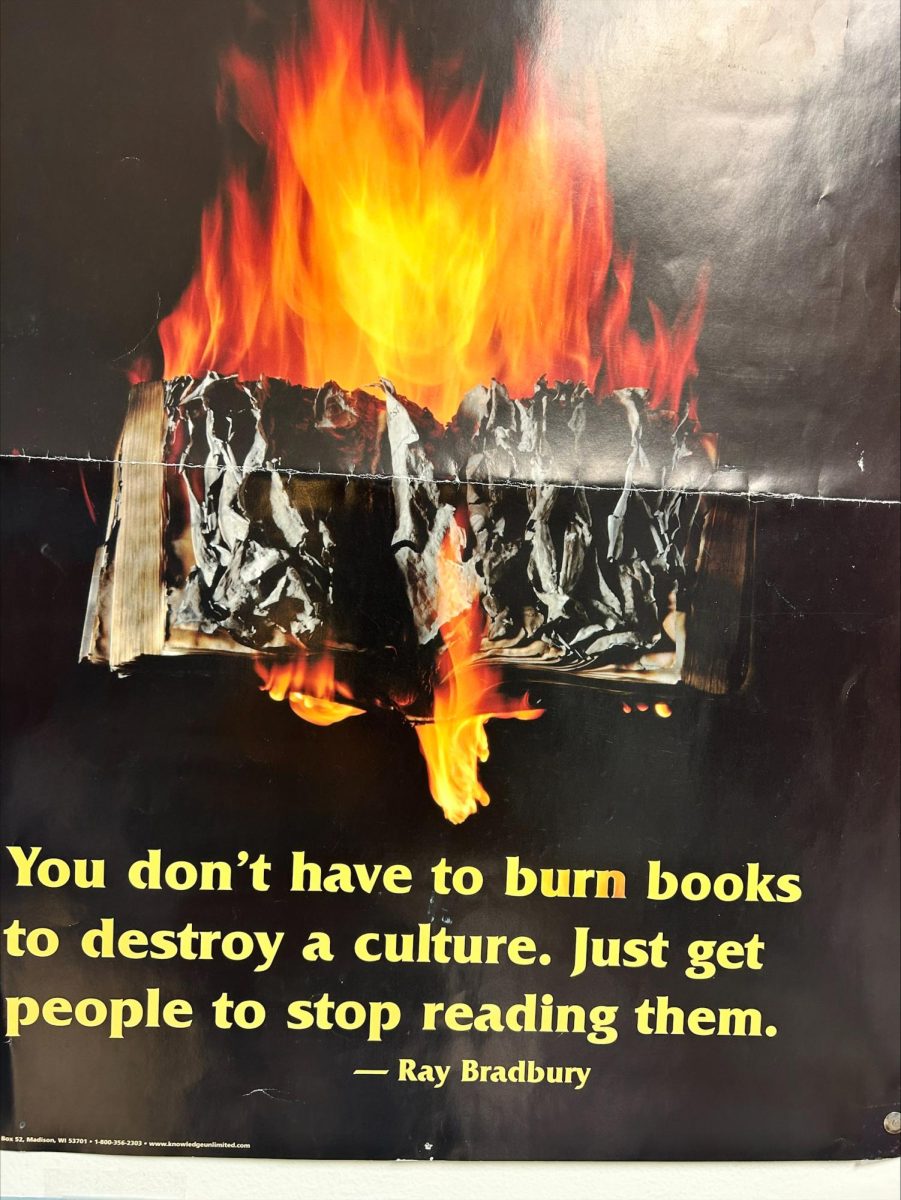
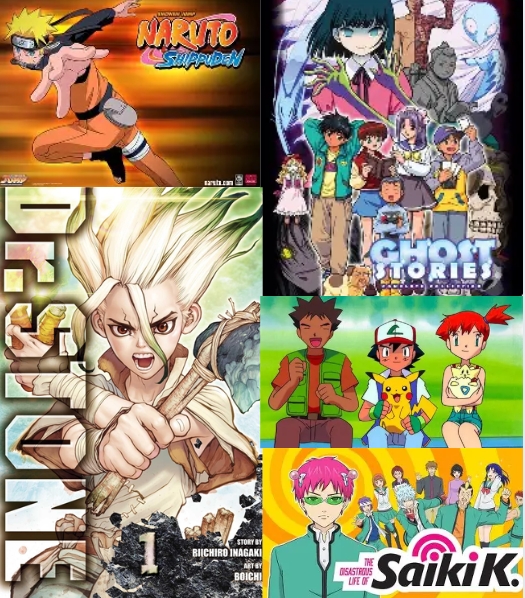
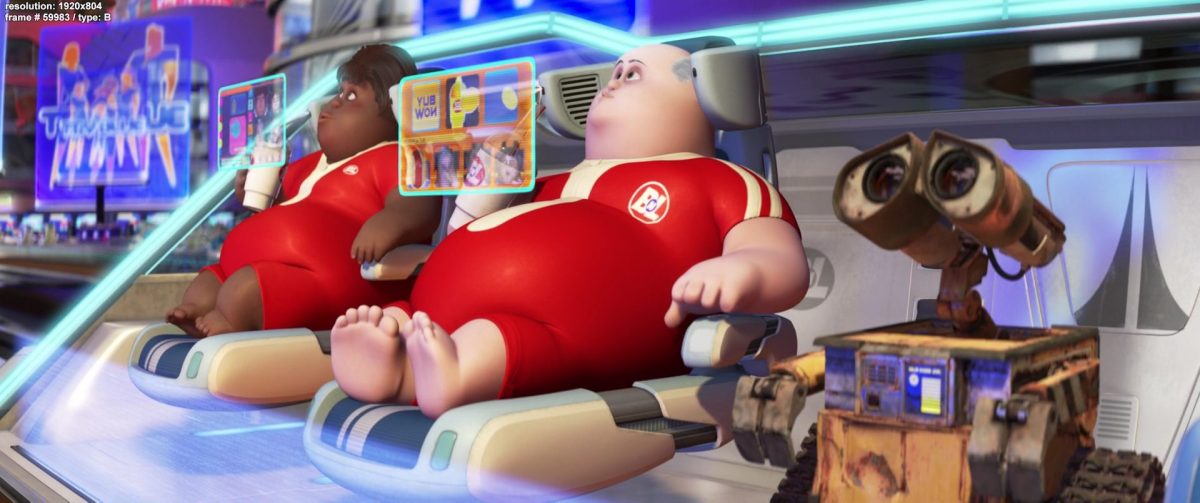
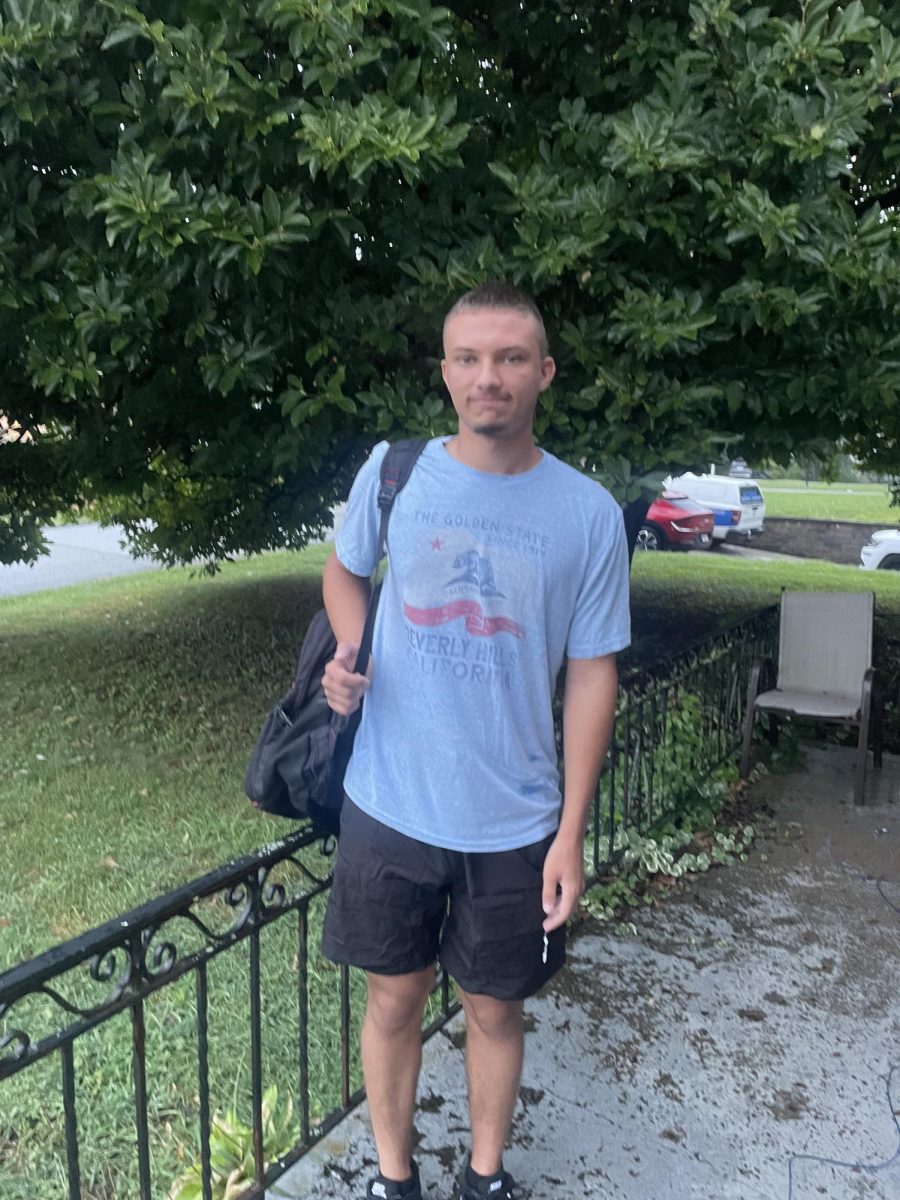
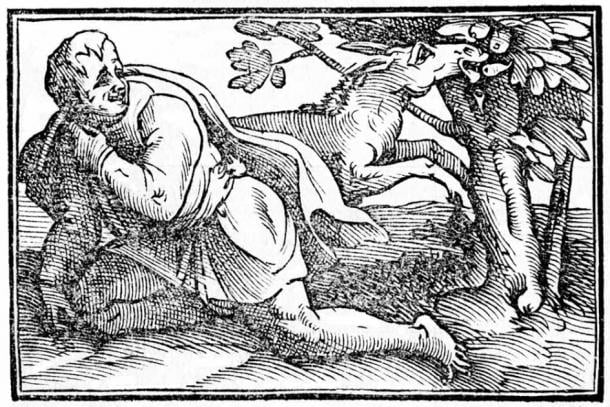
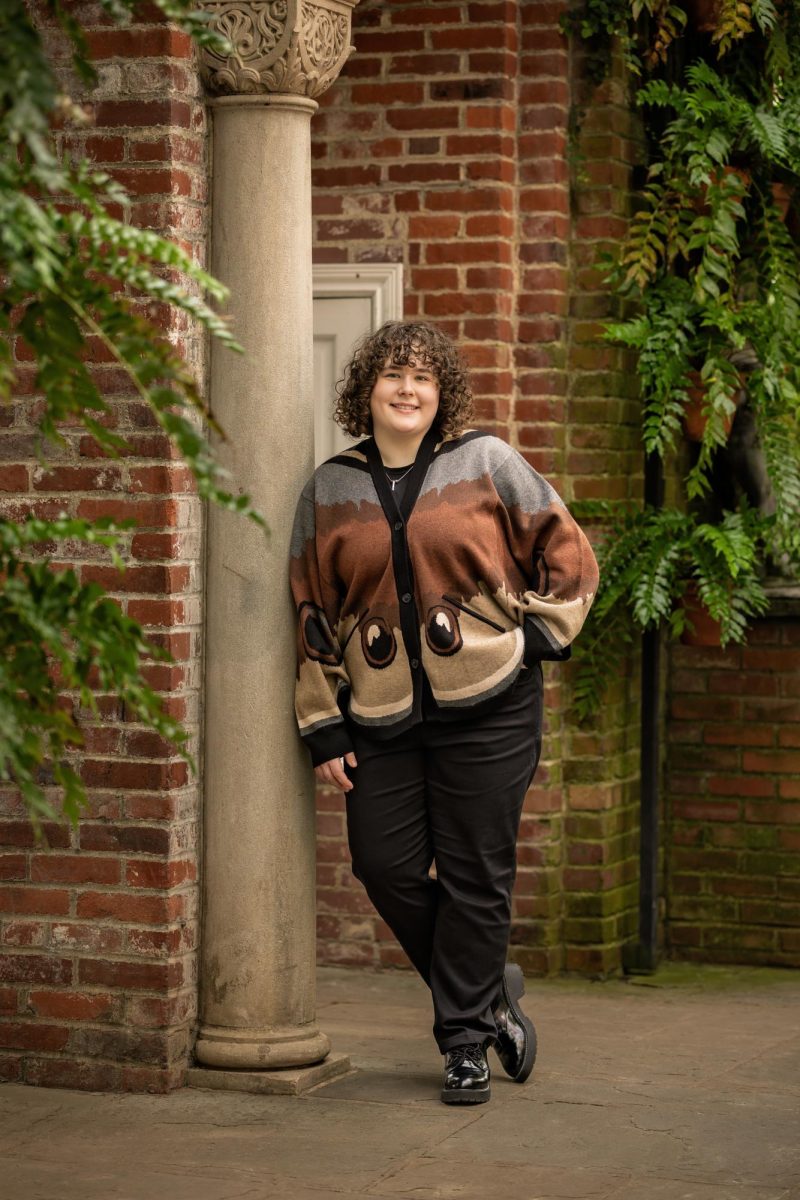

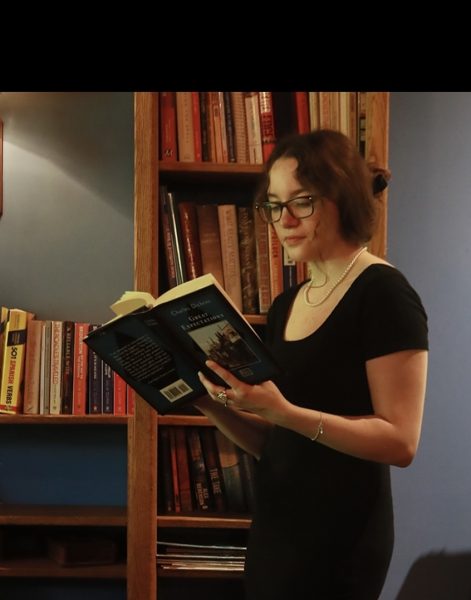
Michael Makay • Oct 22, 2024 at 12:33 pm
Really well done Grace, this is a great idea for an article, more people should read this to understand the importance of censorship books or any kind of public media !
Ellen Fleckenstein • Oct 17, 2024 at 11:20 am
Books were one of the first ways I felt “understood” as well. With today’s age of social media we don’t always get peoples’ truest selves in the content we consume. Books that we can relate to help us feel less alone in the world. Excellent writing and message!